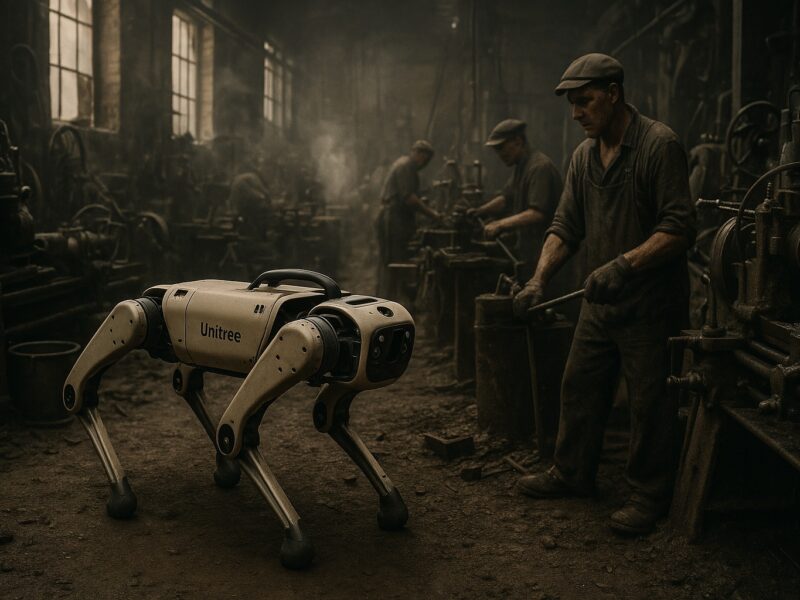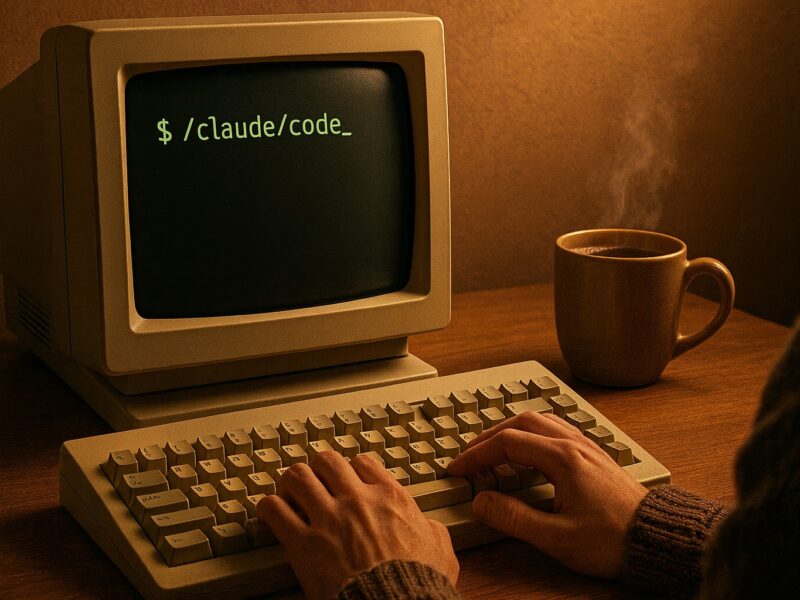I’ve been an unabashed Apple fanboy since 1987, when I met my first Macintosh SE. Black and white, with a tiny 9 inch screen, I knew the world was about to change. Until then, I’d used Commodore and Apple II computers… but the Mac? The Mac was something entirely different.
Thirty years later, computing has moved from a silo on a desktop to a globally disbursed, always connected network. Sure we still have machines in front of us, but they’re used largely to do things with the internet.
Consumers have never had more choice in platforms – all most people need is a way to access the things they’ve stored somewhere in “the cloud.” More and more, the consumer desktop/laptop is being cast aside in favor of smaller and lighter devices, like tablets and large screen smart phones.
It’s with this realization decided that I’ve decided to transcend the idea of an operating system, and move even further toward platform independence. Over the next several years, computing will go through another massive change, moving away from LCD displays placed 16 – 24 inches from your nose to displays resting quite literally on it.
As importantly, the resulting ecosystem will be, by necessity, platform independent. To use the social VR spaces and to participate in the future of work, you’ll need a machine capable of rendering the environment and a headset. There is no place for vendor lock-in in this space.
Great work is being done for the next generation of human computer interaction. Oculus, Vive, Samsung, Pimax, and many others are working on their best versions of VR displays. Room-scale VR is more than a sci-fi feature, it’s available today. The VR market is heating up, with competition in every space – input devices, displays, head and motion tracking, and even in world building. Apple is also on board, and that in itself should serve as notice to the market that a major shift is coming.
But VR is the future, right? Kind of.
On Wednesday of this week, I’ll be assembling my first Windows powered desktop PC in dangerously close to 10 years. It’s a workhorse, with plenty of power for the future. Today it’ll allow me to edit 360° video with ease, and of course edit traditional video as well – all in the name of Epic Mini Life.
It’ll also allow me to use any VR software title on the market with no frame skipping or delays what so ever. I won’t have a “monitor” attached to it, it’ll be “headless.” I’ll be using Virtual Desktop and Leap Motion VR instead of a mouse/trackpad.
It’s going to be an interesting experiment, and it may not work out exactly as I expect, but doing anything worth a damn is filled with the unexpected isn’t it? This is my sweet spot… doing things that have never been done, working on technologies that aren’t yet mainstream, and creating things that most don’t even know they need. Yet.
In case you’re wondering, I’ll be using the 4k Pimax headset instead of Oculus or Vive solutions. I’ll lay out more of that decision as the experiment begins.
You read it here… I’m building a PC, powered by Windows 10. I’ll keep my iPad Pro for portability, and I’ll hand my 2012 MacBook Pro down to my daughter, keeping it in the family.
Here’s to the future. 🙂



I’m completely fascinated by the direction you’re moving.
I’m hardware independent because 99% of what I do is on the cloud and all my files are backed up instantly. That said I did get sucked into the Google ecosystem mostly because of gdrive and gdocs, which is something I don’t like.
I’d love to check out your system when you’re ready for show and tell!
You shouldn’t have bought a workstation at all. Today you have very powerful cloud-based workstations with lots of GPU for VR. check gdaas.com
Definitelly something that https://owncloud.org/ could fix for you 😉
I wonder, did you consider doing some of that stuff under Linux? I never incursioned into VR, but have been working/using Linux since about 10 years now.
About what you are saying about OSs, and platforms, I’ve been thinking of this concept since about 3 years now, where everything is becoming part of a huge distributed operating system, where processing occurs in different nodes, as a service, performed by different actors, where the Internet is the common ground where everything communicates, using (for now) dispair “protocols” to communicate each one of those actors.
I definitely think that in the near future all devices/nodes will be embeeded into our life.
Changing subjects, I just finished reading all your articles in these blog. I’m really happy for you and your family taking this direction. I can relate about living with the minimum. I just started a year ago what I call my second lifetime migration. I was born in Jujuy, Argentina, been there until 18. After that I moved to Buenos Aires, to study, and been there for about 24 years.
Been to different places because of work (I traveled around South, Central and North America). I kind of know all the perks of travelling, being light, and living visiting new places all around.
While living in Buenos Aires, I think I moved like about 10 times. Each time was a new oportunity to get rid of stuff that “you don’t need”. On my last move, from Argentina to the States, my son and me just packed the bare minimum: cloths, computers, rollerblades, all in 4 luggages. And that was it. Then we moved into a home here in Coppell, TX, near High School. We did acquired some stuff in one year. the basics for the house, but mostly things we enjoy having, like one gaming computer for our living room.
But, this is far from being a final place to be. I actually don’t think of “establishing” in one place for my lifetime. May be because of my experience working in different places, made me curious and a person that enjoys finding new places, meeting new people.
I can also relate about the impact we make as a person. Even in Buenos Aires, I was very careful about recycling (back there, you have black and green bags for your garbage). I actually had this feeling of “guilt” for buying meals that came with packages that only lasted 5 minutes, from the place where I bought it to home.
I was really shocked on how much discardable things people use here. I even increased the amout of garbage I used to generate in Buenos Aires.
I didn’t intend to write this much, but well, again, I really enjoyed your endeavour, thanks for sharing!
I hope to keep in touch!
Regards,
Luis
Hey Luis, thank you for the fantastic post. We’re enjoying the process of smaller, lighter, and more intentional.
My first foray into unix like OSes was BSD in the mid 90’s. It’s been fun to see it rip thorough commercial server infrastructures like crazy. It’s a remarkable industry in itself.
Thanks again for the kind words… let’s keep in touch, indeed.